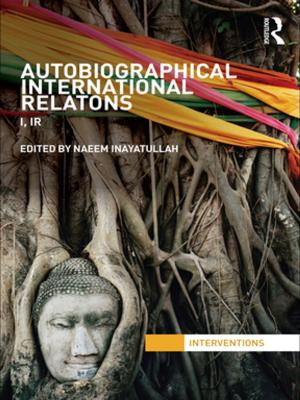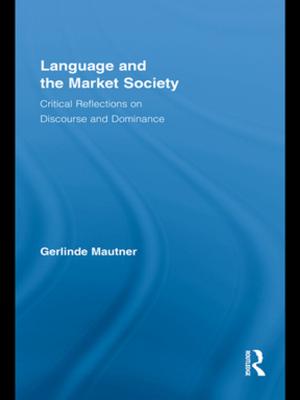International Innovation Networks and Knowledge Migration
The German–Turkish nexus
Business & Finance, Management & Leadership, Industrial Management| Author: | ISBN: | 9781317429012 | |
| Publisher: | Taylor and Francis | Publication: | July 15, 2016 |
| Imprint: | Routledge | Language: | English |
| Author: | |
| ISBN: | 9781317429012 |
| Publisher: | Taylor and Francis |
| Publication: | July 15, 2016 |
| Imprint: | Routledge |
| Language: | English |
Migration is conceived differently in Europe compared with countries like the US, Canada or Australia. International Innovation Networks and Knowledge Migration confronts traditional views on migration with modern theories of brain circulation and innovation networks, showing that migration leads to mutual benefits for both the home and host countries
This new volume brings together several case studies and empirical in-depth analyses which are constructed from the strong migration relationship between Turkey and Germany that has existed for more than 50 years. Bringing together over 20 international contributors, this book highlights that knowledge migration and cultural diversity can strongly stimulate entrepreneurial activities, competence acquisition and economic development of countries and regions. The authors highlight the considerable scope for improvement of European migration policies in order to be better prepared to successfully process structural changes stemming from an aging society in Europe, and an increasing international division of labour.
This volume is suitable for those who study industrial economics, international economics and European economics. It is also of interest to those who want to delve deeper into the Turkish-German migration nexus.
Migration is conceived differently in Europe compared with countries like the US, Canada or Australia. International Innovation Networks and Knowledge Migration confronts traditional views on migration with modern theories of brain circulation and innovation networks, showing that migration leads to mutual benefits for both the home and host countries
This new volume brings together several case studies and empirical in-depth analyses which are constructed from the strong migration relationship between Turkey and Germany that has existed for more than 50 years. Bringing together over 20 international contributors, this book highlights that knowledge migration and cultural diversity can strongly stimulate entrepreneurial activities, competence acquisition and economic development of countries and regions. The authors highlight the considerable scope for improvement of European migration policies in order to be better prepared to successfully process structural changes stemming from an aging society in Europe, and an increasing international division of labour.
This volume is suitable for those who study industrial economics, international economics and European economics. It is also of interest to those who want to delve deeper into the Turkish-German migration nexus.















